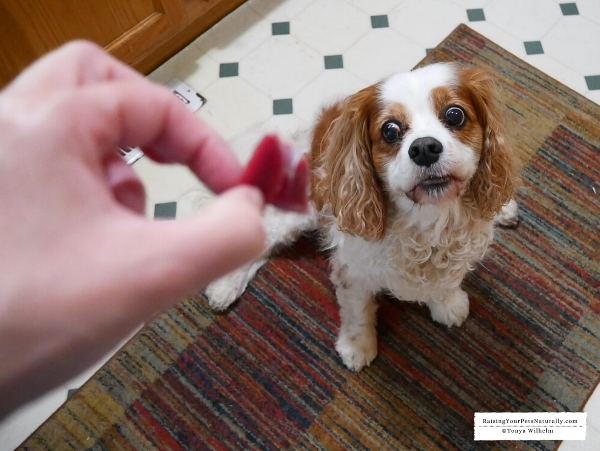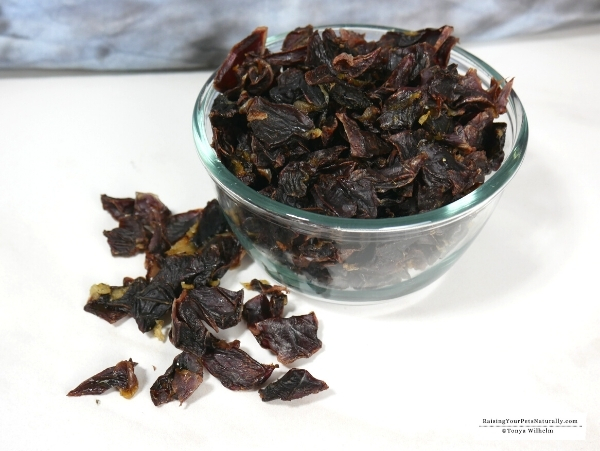Google Adsense—>


I’m sure Dexter loves all of his DIY raw dog food meals I create for him. At least he gobbles up all of his food and is in optimal health for his age and his disease we tackle each day. I equate his enthusiasm for his food and his optimal health to the quality of his home-prepared food. Today, I wanted to talk about feeding raw or cooked gizzards to your dog.
Balancing a Raw Dog Food Diet
This dog nutritional post is not going to go into detail on how to balance home-prepared dog food. But, in a simplistic nutshell, it’s about rotation, feeding approximately 80% muscle meat, 10% organ meats, 10% bone and supplementation (mixes, fruits, vegetables, etc.). Nutshell.
One of the foods that I rotate into Dexter’s meals is chicken or duck gizzards. According to Wikipedia, “The gizzard, also referred to as the ventriculus, gastric mill, and gigerium, is an organ found in the digestive tract of some animals, including archosaurs (pterosaurs, crocodiles, alligators, dinosaurs including birds), earthworms, some gastropods, some fish, and some crustaceans.”
When you are creating a balanced meal for your dog, the gizzard is actually considered a muscle meat, not an organ. So, this would be part of your 80% muscle meat allowance.

Health Benefits of Gizzards for Dogs
Gizzards are high in protein and low in fat. One ounce of gizzard provides a 30 lb. dog over 55% of his lysine needs. Lysine is an essential amino acid that a dog’s body cannot produce on its own, it must be obtained from food. Gizzards also contain 50% of a 30 lb. dog’s daily vitamin D3. It also is a great source of Arginine also known as L-arginine, which is beneficial to the heart. A must for Cavaliers and other breeds prone to heart conditions.
Gizzards are rich in Niacin (B3), which supports a dog’s brain function and can help ease stiff joints. For more joint power, they contain cartilage and glucosamine. Not bad for an inexpensive raw dog food ingredient. According to Traditional Chinese Medicine Theory, gizzards can improve digestions, reduce food stagnation¹.

Ingredients
|

|
- Slice gizzards into bite-size pieces. Slice while slightly frozen.
- Place on a dehydrator tray.
- Dehydrate to the consistency your dog prefers. Approximately 12-hours.
- Allow to cool. Place a handful of treats in a cookie jar for the week. Keep remaining treats in a container and freeze until needed. This preserves the freshness.
Your questions or comments are welcome below.
Are you looking for even more ways to stay up to date with Raising Your Pets Naturally? Sign up for the newsletter for more tips and promotions. Don’t forget to be social and Like, Follow and Subscribe. Comments below are always welcome.
Facebook Twitter Pinterest Instagram YouTube
 |
 |
|
|






I have been feeding my dogs gizzards daily for years due their high glucosamine content. However, gizzards are also reportedly high in cholesterol and for that reason best limited to approx 10% of their daily diet. Perhaps you mentioned that info and I overlooked it but if not, just want to mention it.
Thanks. 10% is actually much more than I would feed. Good point.